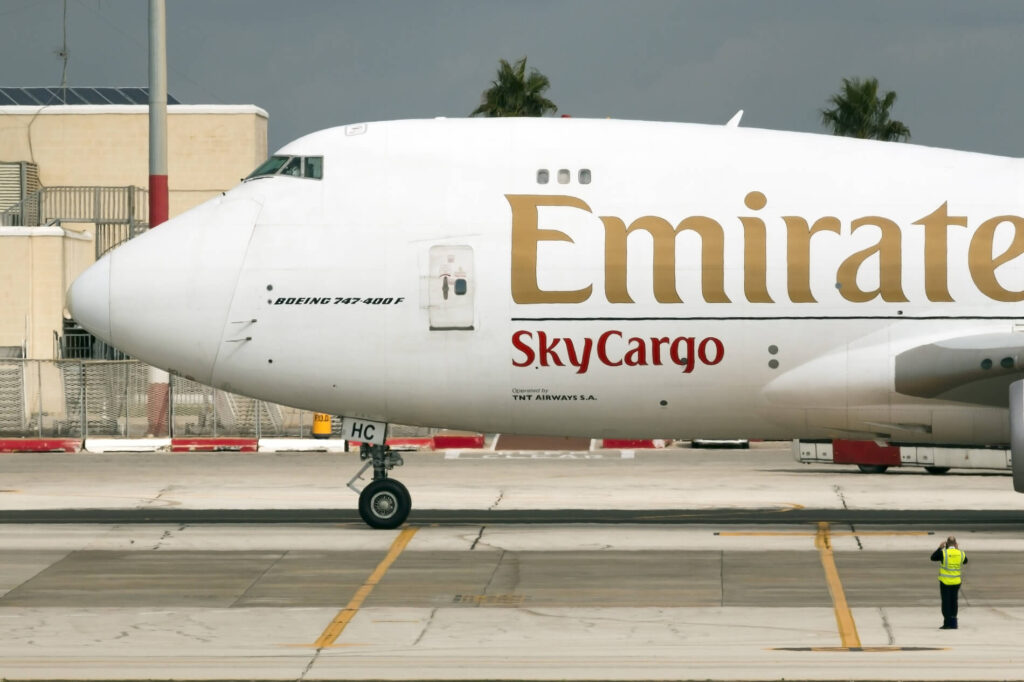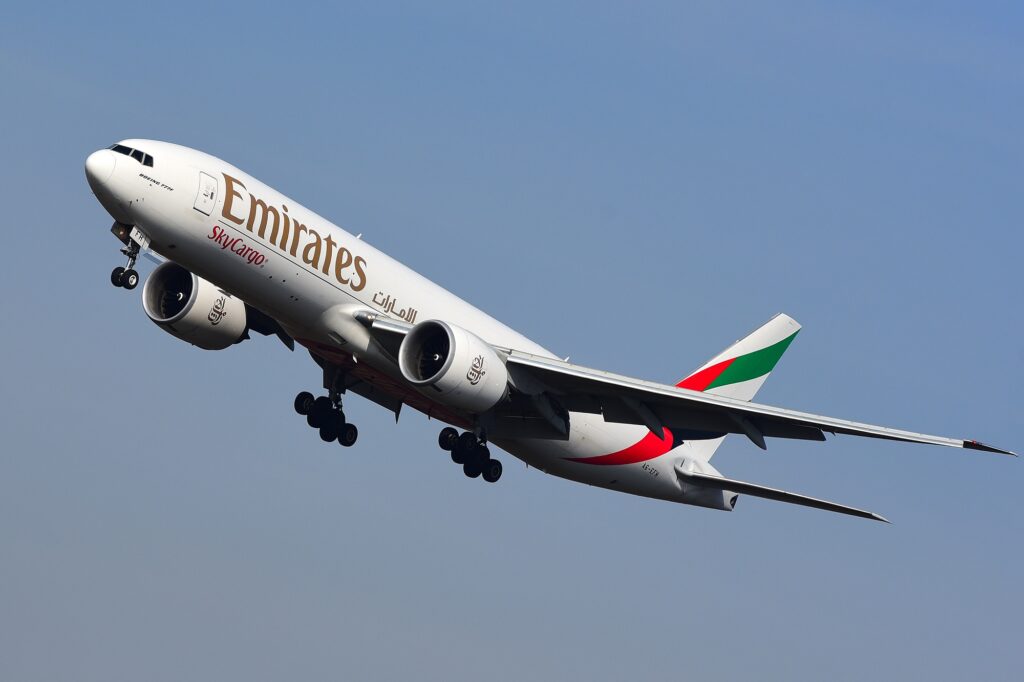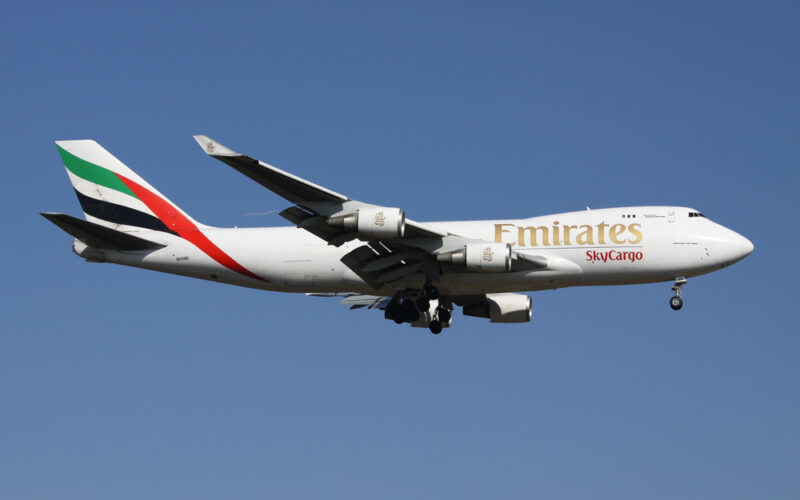Emirates SkyCargo, the air freight division of Dubai-based Emirates, is adding two additional Boeing 747-400F freighters to its fleet to meet soaring demand. The additional pair of widebody freighters will form part of the company’s newly expanded fleet which is expected to reach 21 dedicated cargo-only aircraft by the end of 2026.
Throughout 2024, the demand for Emirates SkyCargo’s services portfolio, along with its extensive global network and dedicated all-widebody aircraft fleet continued to grow at an unprecedented speed. The addition of the two wet-leased 747-400Fs, sourced from airfreight specialist carrier Compass Air Cargo, brings the carrier’s total main deck capacity for January 2025 to a level that is 15% higher than the same month in 2024.
According to a company statement, the investment in the additional two aircraft will “enable the airline to unlock immediate capacity to cater to customer demand, while the partners discuss avenues for further expansion of the collaboration.” The multi-year lease for the Boeing 747-400Fs fits in nicely with Emirates SkyCargo’s leasing strategy which sees leased-in aircraft complement its owned fleet.

In 2024, the airline received two factory-fresh Boeing 777Fs, which entered service immediately and brought the company’s owned fleet to ten units. In 2025, the carrier intends to focus on the increasing demand for eCommerce shipments from Asian markets, while the additional aircraft will also enable Emirates SkyCargo to expand its network of destinations served by freighters to 38, with the deployment of a new weekly freighter service serving Copenhagen in Denmark.
“Throughout 2024, we made significant investments in new and leased freighter aircraft to address the evolving supply chain and air cargo demands around the world to ensure we had a stable supply of capacity to best serve our global customers,” said Badr Abbas, Divisional Senior Vice President, Emirates SkyCargo. “This remains a key priority for Emirates SkyCargo, as we set our sights on the next era of growth.”
“We anticipate that demand will continue to boom, reflecting Dubai’s prominence as a global logistics hub. Enhancing our cargo capabilities is essential to support Dubai’s Economic Agenda, enabling us to reach new destinations, bolster our current operations, and elevate our specialist product portfolio,” he added.

In addition to the ten Boeing 777Fs and six leased 747-400Fs (bringing the current aircraft count to 16), the airline also has a further 13 Boeing 777Fs on order, with expected delivery dates spread across 2025 and 2026. This substantial orderbook, says the company, “will support the airline through its next phase of growth, while it explores all options for the future fleet, including the Boeing 777-8F and Airbus A350-1000F.”
While mentioning the Airbus A350, the arrival of new aircraft of this type into the Emirates fleet through 2025 and beyond, will further boost the company’s ability to offer increased belly-hold cargo capacity on Emirates passenger flights, offering 12 tonnes of capacity on every flight operated by the new Airbus twinjets. Elsewhere, Emirates SkyCargo continues to harness the multi-frequency schedules offered by the rest of Emirates’ passenger operations.
“The recently increased passenger flights to key cities including Madagascar via the Seychelles, Uganda, and Ethiopia, followed by Johannesburg, South Africa, and Melbourne, Australia before the end of this financial year, will further bolster the freight division’s capacity to transport goods worldwide,” concluded the statement.

